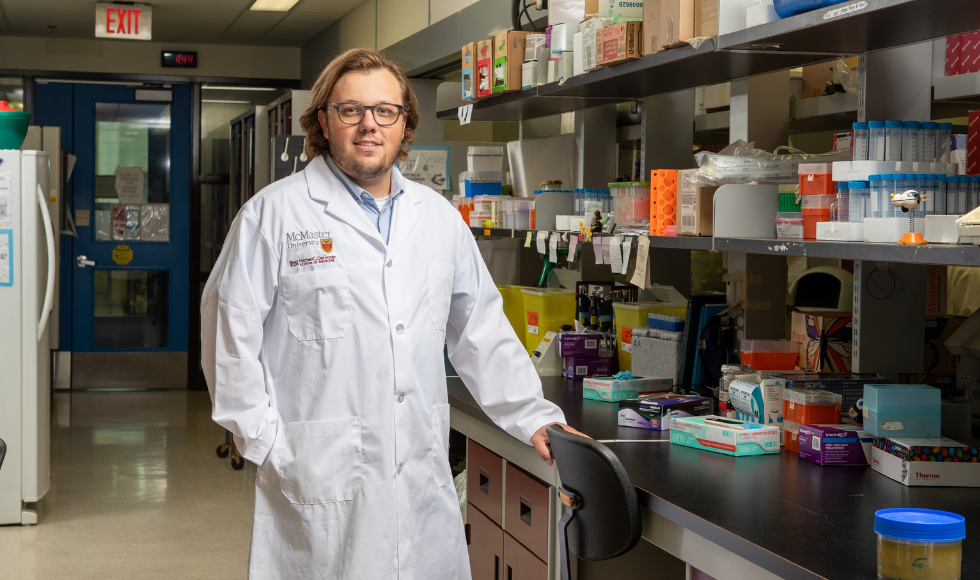McMaster researchers create instruction manual to detect rare cells that can cause allergies

Professor Joshua Koenig, above, and PhD student Allysa Phelps, not shown, both from the department of medicine, led the development of an instruction manual for scientists that can be used to detect extremely rare to tag B cells for allergy research.
BY Adam Ward, Faculty of Health Sciences
January 19, 2024
McMaster researchers have created an instruction manual that will help scientists around the world find hard-to-detect B cells, a type of immune cell that can also cause allergies and autoimmune diseases.
Led by PhD student Allyssa Phelps and Assistant Professor Josh Koenig from the department of Medicine, researchers wanted to chart a path to finding these cells as part of their work in understanding food allergies. Their work was published Jan. 19 in the journal Nature Protocols.
B cells make antibodies and help fight conditions like cancer and infections, but can also cause autoimmune diseases and allergies.
“One of the big problems with trying to study these B cells, the ones that make these antibodies that have all kinds of different and very important functions, is that they’re really, really, rare,” Koenig says, using a peanut-specific B cell as an example. These make up less than 0.0001 per cent of immune cells in human blood.
“It’s hard to find them. And so, you have to have very good tools that will help you study these things.”
The team adopted a method developed by Justin Taylor, who operates the Taylor Lab out of the University of Virginia.
“With these protocols now published, more researchers around the globe will be able to make these types of tools to help to push their science ahead,” Taylor says.
His method uses antigen tetramers to sensitively tag and enrich specific B cells so they can be detected.
Tetramers are made up of four antigen molecules, which scientists can customize. The customization is vast and can cover B cells specific to anything from peanuts to COVID-19.
“After using the technology for a few years in several of our studies and making multiple different allergen tetramers and antigen tetramers for other people, we decided to write up a protocol paper to help other people study these incredibly important B cells,” Phelps says.
Tetramers can also be used to study the efficacy of vaccines: Koenig and his team assisted McMaster researchers Matthew Miller, Brian Lichty, and Zhou Xing in determining whether their vaccine candidate activated protective COVID-specific B cells.
The study was supported in part by a $10-million donation from the Schroeder Foundation to McMaster, as well as funding from ALK Abello A/S, a pharmaceutical company based in Denmark.


